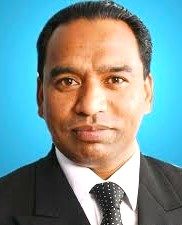
By Asghar Ali Mubarak
The alarming resurgence of polio in Pakistan this year marks a deeply concerning setback in the country’s prolonged fight against the disease. With 41 cases reported in 2023—a stark contrast to only six cases last year, and even fewer in preceding years—Pakistan’s polio campaign is facing an undeniable challenge that demands immediate and intensified action. Despite federal and provincial government efforts to deliver polio vaccinations to all children under five, this recent uptick reveals critical gaps in campaign coverage and, perhaps more troublingly, in public trust and understanding. Prime Minister Shehbaz Sharif’s response, calling for a third-party audit, underscores the gravity of the situation. By examining campaign shortcomings through an external lens, the government hopes to unearth the root causes of this resurgence and ensure that resources are strategically directed to maximize impact. Such measures reveal an acknowledgment that despite years of anti-polio work, systemic weaknesses remain.
In Sindh, the response has extended to high-level governmental involvement, with Chief Minister Syed Murad Ali Shah postponing the provincial assembly session to engage legislators in bolstering campaign efforts within their own constituencies though the EOC Sindh authorities seems vulnerable against the polio outbreak as Karachi has become the epicenter of virus having all environmental samples positive. It is persistently identified that the incumbent EOC Coordinator is more inclined to project oneself rather working to eradicate the virus causing serious threat to the entire polio program as the claim proven that after assuming the office charges Sindh before him was about to declare a polio free province now one of the threats to the world to be the epicenter of poliovirus outbreak. Punjab, otherwise, has launched robust monitoring mechanisms, aiming to ensure no child is left unvaccinated, while other provinces follow suit. Yet, these well-intentioned actions are evidently insufficient, as persistent polio cases indicate that significant hurdles in outreach, access, and compliance remain.
The stakes in Pakistan’s polio battle are no less than the future of a generation. Polio is not only a preventable disease but an irreversible one, leaving children who contract it with lifelong disabilities that place an enduring strain on them, their families, and society. For a country already burdened with multiple public health crises, the resurgence of polio underscores a painful reality: the cost of public health complacency is steep. This year’s troubling numbers serve as an unambiguous reminder that Pakistan cannot afford even a modicum of leniency in its fight against polio. A comprehensive, country-wide immunization initiative must be implemented with unprecedented vigor, reaching all children regardless of their location or socio-economic background. At the root of this crisis lies a formidable barrier: cultural and religious misconceptions. Despite years of public health advocacy, a persistent segment of the population remains resistant to the polio vaccine, often driven by deeply rooted fears and superstitions. These beliefs, coupled with misinformation, pose a severe challenge to eradication efforts.
Pakistan’s health authorities, with the support of community leaders and local influencers, must intensify educational outreach to dismantle these misconceptions. The campaign’s success hinges on replacing misinformation with clarity, ensuring parents understand the vaccine’s safety and the potentially devastating consequences of non-compliance. In tandem, the government must enforce vaccination mandates where necessary, deploying every available resource to ensure children receive this crucial preventive care. Beyond immediate solutions, Pakistan must recognize that sustained, proactive measures are essential for long-term polio eradication. The current crisis demands an unequivocal commitment to systemic improvements and strengthened public health infrastructure that can withstand challenges from both within and beyond the country’s borders.
Investment in healthcare access, particularly in remote and underserved regions, must be prioritized to prevent future outbreaks and to maintain the health of all citizens. Just as critically, the government must nurture public trust through transparent communication, demonstrating to communities that vaccination is both a right and a necessity for the well-being of their children. This year’s surge in polio cases is a somber reminder of the stakes involved. Pakistan’s children, whose lives and futures are now precariously tethered to the efficacy of a national immunization drive, deserve a future free from preventable disability. The state and its citizens must now unite in purpose and action, wielding education, authority, and compassion to rid Pakistan of polio once and for all. The path forward is clear but demands an unyielding resolve to confront, rather than sidestep, the deeply entrenched barriers standing in the way of a polio-free Pakistan. In this battle, the cost of hesitation is simply too high.
(The writer is a senior journalist covering various beats, can be reached at news@metro-morning.com)



